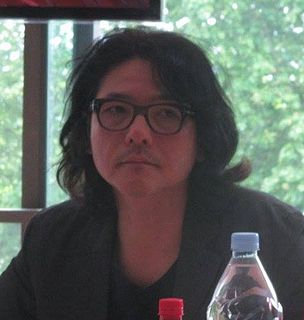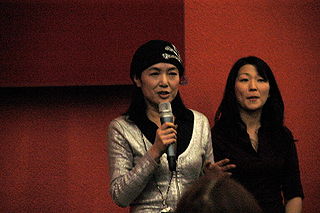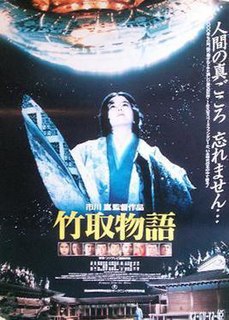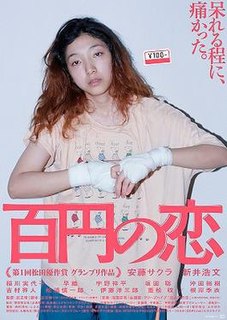| Swallowtail | |
|---|---|
 | |
| Directed by | Shunji Iwai |
| Produced by | Shinya Kawai |
| Written by | Shunji Iwai |
| Starring | Hiroshi Mikami, Chara, Ayumi Ito Yōsuke Eguchi Andy Hui Atsuro Watabe |
| Music by | Takeshi Kobayashi |
| Cinematography | Noboru Shinoda |
| Distributed by | Kadokawa Herald |
Release date |
|
Running time | 148 minutes |
| Language | Japanese English Mandarin |
Swallowtail, also known as Swallowtail Butterfly (スワロウテイル Suwarōteiru), is a 1996 Japanese crime film directed by Shunji Iwai, starring Hiroshi Mikami, pop-singer Chara, and Ayumi Ito.

Shunji Iwai is a Japanese film director, video artist, writer and documentary maker.
Hiroshi Mikami is a Japanese actor. He starred in the musical Hedwig and the Angry Inch in 2004. In 2015, he also features on a song from the album Vitium by Japanese band Sukekiyo.
Contents
The film was shot on hand-held cameras using jump cuts and other visual techniques. [1] It covers a wide array of themes and genres, from social realism to coming-of-age to crime.

A jump cut is a cut in film editing in which two sequential shots of the same subject are taken from camera positions that vary only slightly if at all. This type of edit gives the effect of jumping forwards in time. It is a manipulation of temporal space using the duration of a single shot, and fracturing the duration to move the audience ahead. This kind of cut abruptly communicates the passing of time as opposed to the more seamless dissolve heavily used in films predating Jean-Luc Godard's Breathless, when jump cuts were first used extensively. For this reason, jump cuts, while not seen as inherently bad, are considered a violation of classical continuity editing, which aims to give the appearance of continuous time and space in the story-world by de-emphasizing editing. Jump cuts, in contrast, draw attention to the constructed nature of the film.
A theme song for the film under Yen Town Band, titled "Swallowtail Butterfly (Ai no Uta)", gained first place on the Oricon Weekly Singles Chart of October 7, 1996. [2]

"Swallowtail Butterfly " is a song by Chara, released under the name Yen Town Band. It was the lead single from Montage, a concept album released for the Shunji Iwai film Swallowtail Butterfly that also starred Chara. This song was used as the theme song for the film.
Oricon Inc., established in 1999, is the holding company at the head of a Japanese corporate group that supplies statistics and information on music and the music industry in Japan. It started as Original Confidence Inc., which was founded by Sōkō Koike in November 1967 and became known for its music charts. Oricon Inc. was originally set up as a subsidiary of Original Confidence and took over the latter’s Oricon record charts in April 2002.
















